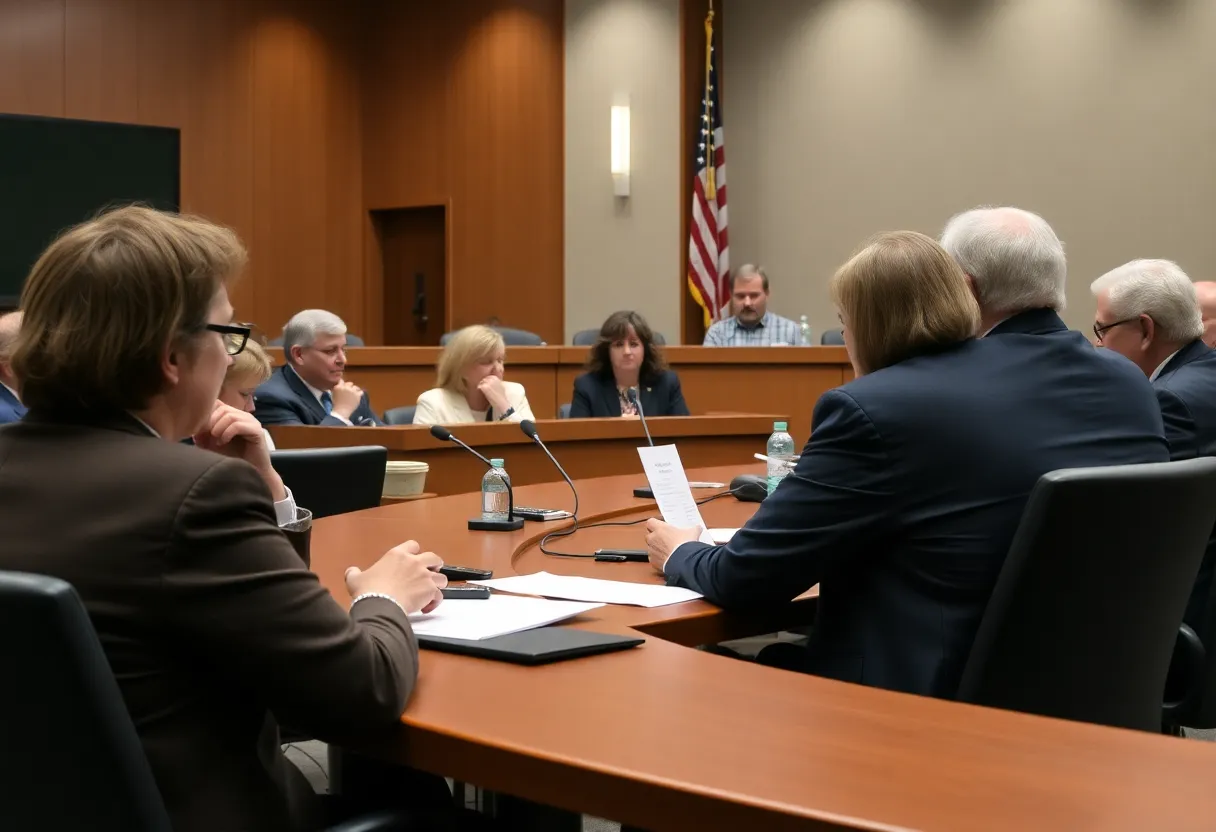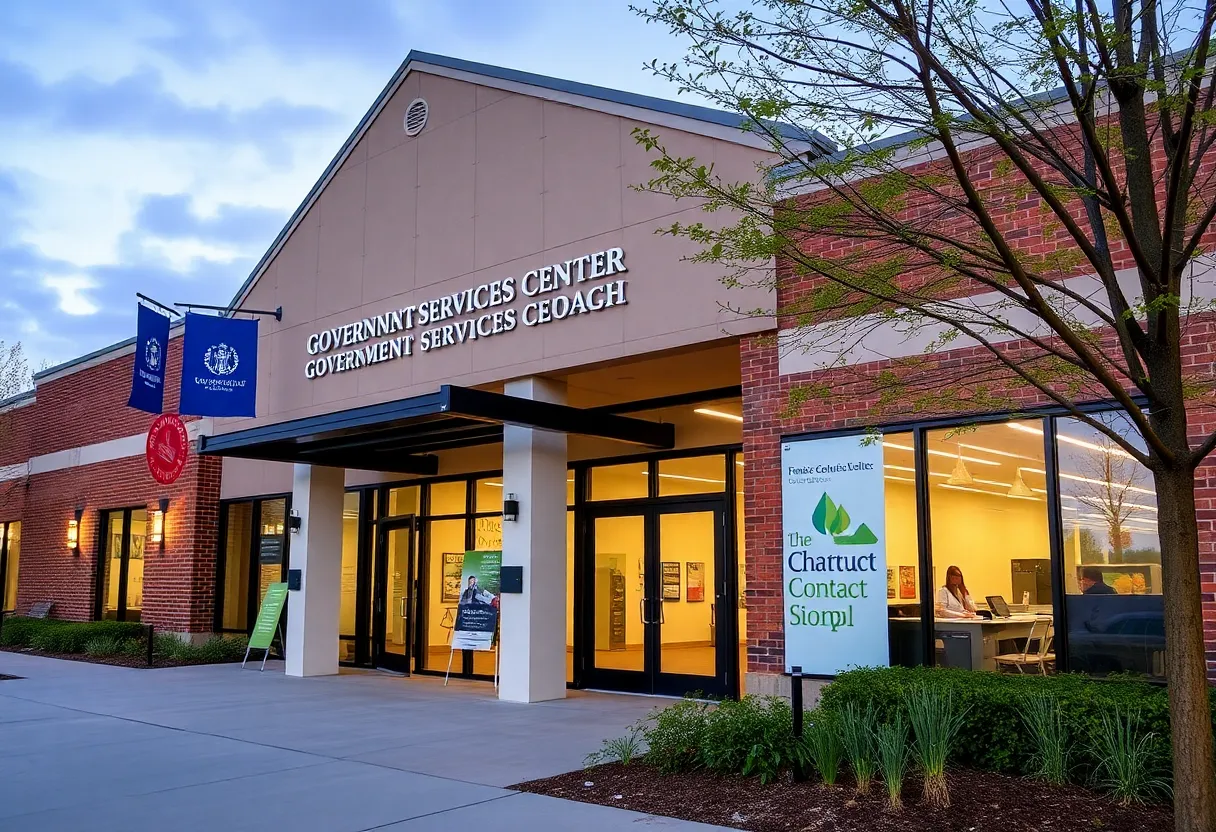News Summary
The Asheville City Council is scrutinizing $1.4 million in unspent Community Development Block Grant funds intended for disaster relief. Amidst an additional funding boost of $1,748,141 from HUD, council members discussed how to efficiently allocate these resources while addressing the urgency caused by Hurricane Helene’s impact on the local economy, which saw a spike in unemployment rates. Proposals include focusing funds on rental assistance and business grants, but challenges remain due to unspent previous allocations and the need for amendments to spending plans.
Asheville City Council Tackles Delays in Disaster Recovery Fund Spending
As the city of Asheville navigates the complexities of disaster recovery, the city council recently took a closer look at the unspent $1.4 million in Community Development Block Grant (CDBG) funds earmarked for disaster relief. This timely discussion led by Councilwoman Kim Roney comes in light of a new financial boost announced by the U.S. Department of Housing and Urban Development (HUD). The news of an additional $1,748,141 in funding has raised hopes but also questions about how to handle existing resources effectively.
Understanding the Financial Landscape
To fully utilize the fresh influx of funds, the city council must first approve amendments to both the FY 2024-2025 Annual Action Plan and the 2020-2024 Consolidated Plan. These plans will outline specific strategies for disaster recovery in light of the ongoing challenges the city has faced.
The CDBG funds are not just a way to improve infrastructure; they are vital for supporting affordable housing, public services, and local economic development initiatives. Initially, the city had proposed a spending plan of $1,003,034 before declaring a state of emergency, indicating the urgency of the situation.
Allocation Plans in the Pipeline
So, how will the new funds be distributed? The proposed allocation focuses on key areas crucial for the community’s recovery and stability:
- Rental assistance: $624,000
- Business grants: $624,000
- Emergency shelters for the homeless: $250,000
- Administrative expenses: $250,141
Yet, there’s a hitch. The additional funds don’t fall into the CDBG Disaster Recovery (CDBG-DR) category, meaning they require Congressional action for official release, which adds another layer of complexity to an already tangled situation.
The Impact of Hurricane Helene
The fallout from Hurricane Helene has been significant, with an estimated loss of 8,200 jobs in the Asheville area, translating into a substantial rise in the unemployment rate to 10.6%. This makes the effective allocation of these funds all the more pressing, as the city works diligently to stabilize its economy.
The Challenge of Spending Funds
Despite the urgency, the situation becomes more perplexing when considering that previous CDBG funds, including $704,070 previously put into the Mountain BizWorks Asheville-Buncombe Rebuilding Together Grant Fund, remain untouched. This, coupled with the fact that organizations like Eblen Charities and Grace Covenant Presbyterian Church have yet to utilize their allocated city grants, raises eyebrows about the capacity and willingness of local organizations to put these funds to work effectively.
Ideas for Immediate Action
Amidst these discussions, Councilwoman Sage Turner has proposed the idea of “clawing back” the unspent funds from Eblen, suggesting they could be better utilized by organizations more ready to put them to immediate use. Time is of the essence, and Council members are weighing whether to redirect Disaster Recovery funds to the county or other organizations equipped to meet federal compliance requirements swiftly.
City Manager Debra Campbell acknowledged the significant capacity issues currently plaguing the organizations in charge of managing these funds. This brings us to the realization that some amendments to the local spending plans are needed to tackle the changing landscape brought on by the COVID-19 pandemic and the housing crisis.
Responses from Local Non-Profits
Even amidst these challenges, local non-profits are eager to play their part. For instance, some organizations, like Helpmate, are targeting CDBG funds to assist victims of domestic violence seeking housing outside Asheville’s limits. Similarly, Homeward Bound has requested plan amendments to introduce Rapid Rehousing services, given the increasing demand for temporary shelter stemming from the pandemic.
Conclusion: An Ongoing Challenge
As Asheville grapples with the challenge of effectively distributing its HUD funds, the clock is ticking. If these funds remain unspent for too long, Asheville could face sanctions from HUD, further complicating an already difficult recovery landscape. The discussion continues as city leaders weigh their options, demonstrating the intricate dance of budget management during a crisis.
Deeper Dive: News & Info About This Topic
HERE Resources
Asheville Faces Hurricane Helene’s Devastation
Hurricane Helene’s Impact on Asheville’s River Arts District
Candidates Prepare for Asheville City Council Election
Hurricane Helene Leaves Asheville Reeling
Asheville Prepares for Heavy Rainfall Amid Recovery Efforts
Asheville Confronts Devastation from Hurricane Helene
Asheville Small Businesses Bounce Back This Holiday Season
Asheville Hosts Bicycle Giveaway for Flood-Affected Families
Santa Claus Spreads Cheer Amidst Hurricane Helene’s Aftermath
Buncombe County Welcomes FEMA Aid for Hurricane Helene Victims
Additional Resources
- Insufficient Capacity: The Buck Stops Here
- Wikipedia: Community Development Block Grant
- Asheville Got to Spend the Money
- Google Search: disaster recovery funds
- Encyclopedia Britannica: housing crisis
- U.S. Department of Housing and Urban Development







